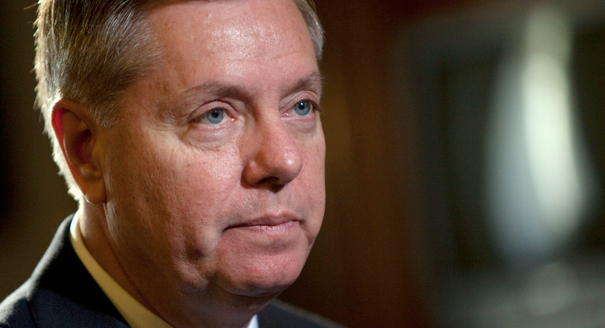Echoing Kenny Rogers’ hit “The Gambler,” politicians should know to run, not walk, away from Lindsey Graham’s “Restoration of America’s Wire Act,” S. 2159, an attempt to federally ban Internet gambling.
Videos By Rare
This bill, perhaps one of the more blatant examples of crony-capitalism from the 113th Congress, would serve as payback to a wealthy donor who has a personal financial stake in creating barriers to entry in the gambling business and who stands to benefit by limiting or outright eliminating competition.
This bill, despite any claims to the contrary, is not about whether people should be allowed to gamble but how and where those who choose to gamble can do so.
In an ad produced by the Coalition to Stop Internet Gambling, an incredulous narrator says, “This isn’t going to a casino, having dinner and a night out. This is gambling on your computer, your mobile phone, and your iPad.”
Later, he continues, “With the flick of a finger, someone you know or love could be taken for thousands of dollars – without ever having to step foot in a casino.”
So there you have it. The crux of CSIG’s argument is that people won’t spend money in brick & mortar casinos, instead gambling from the comfort of their own living room — and likely save some dough in the process (though that goes without saying — no need for a $200+ dinner for two or a $159+ weekend hotel room on the strip in Vegas).
As you can see if you peruse any of their work on the issue, CSIG’s real concern is where an individual will spend all that money, not whether or not they spend it on gambling in the first place.
But crony capitalism isn’t the only reason to oppose this legislation.
S. 2159 is blatantly unconstitutional. Nowhere in the Constitution is the federal government granted authority to regulate any type of gambling. Instead, the issue falls under the 10th amendment jurisdiction of the states, which can decide for themselves whether or not to allow Internet gambling.
While some proponents of the bill claim that gambling is immoral, this does not justify the federal government exceeding its constitutional authority any more than some people’s failure to purchase health insurance justifies the ObamaCare mandate. History is littered with failed efforts by governments that, while they may have been undertaken with the best of intentions, only resulted in making an initial problem much worse while expanding government power and bureaucracy.
As a matter of principle and in recognition of the historic growth the Internet has experienced precisely because government interference has been minimal, liberty-loving Americans should oppose any attempt by government to tax, regulate, monitor, or control the Internet.
Since my organization Campaign for Liberty released the Technology Revolution Manifesto in 2012, protecting Internet Freedom has been a top priority for Campaign for Liberty, and it will remain so as long as government continues to threaten it.
Whether the issue is Internet sales taxes, Internet access taxes, SOPA/PIPA/CISPA/CISA, Net Neutrality, or Internet gambling, defending privacy and online freedoms should be a top priority for all Americans.

